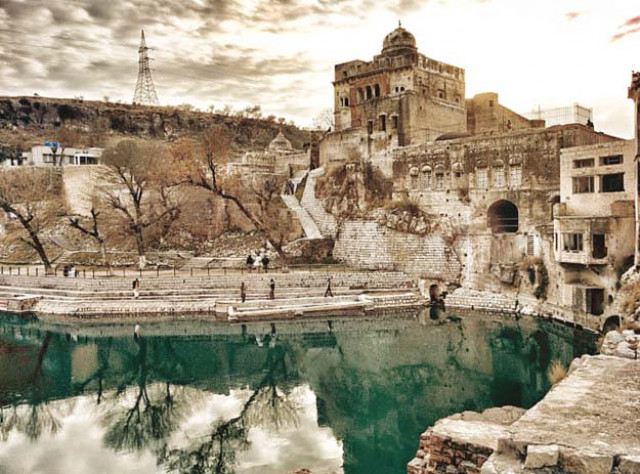Top court seeks report on fabled Katas Raj Temples' pond drying up
The area's subsoil water is being used by nearby industrial plants

PHOTO: Express/File
Once an ‘unfathomable’ pond, always on the verge of overflowing, has been shrinking. Locals blame the cement plants, which, they said, have drilled a number of water-bores in the vicinity of the temples, to draw water for their industrial production.
Taking notice of the grave situation, the chief justice sought a detailed reports from the relevant officials of the federal and Punjab governments within three days.
Katas Raj Temples: last vestige of Hindu era
The Archaeology and Museum Department, Islamabad, the Evacuee Trust Property Board, Lahore, the Archaeology Department, Lahore and the Chakwal deputy commissioner will submit the reports.
Dedicated to Hindu god Shiva, the Katas Raj temples are situated near Choa Saidan Shah in the Chakwal district of Punjab. The site originally housed a cluster of seven ancient temples, along with a Buddhist stupa and the home of a warrior -- built between 6th and 13th century.
Legend has it the pond was formed by the tears shed by Shiva over the death of his wife Sati. Hindu pilgrims from around the world visit the Katas Raj temples during the Maha Shivratri festival and bathe in the ‘sacred pond’ to seek forgiveness. Some believe the water holds healing powers.
The sacred waters of the Katas Raj Temples
However, recent reports have suggested that the pond is drying up because of lack of recharging water. The locals say that the factories around the area are drawing huge quantity of water through more than hundred bores, which have severely reduced the subsoil water level.
And since there is no water supply scheme for Katas Waulah and Choa Saidan Shah, the people have also resorted to deeper water-bore to meet the domestic need of water, reducing further the water level in the area.



















COMMENTS
Comments are moderated and generally will be posted if they are on-topic and not abusive.
For more information, please see our Comments FAQ